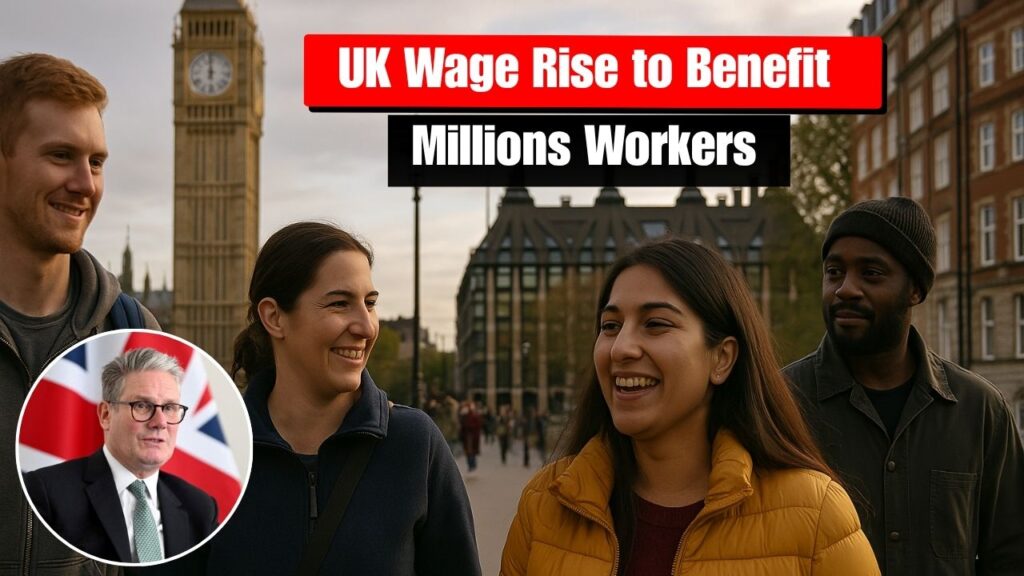The UK government’s decision to raise the minimum wage from 5 November 2025 marks a major turning point for millions of low-paid workers. This long-awaited wage rise in the UK aims to ease financial pressures, support households struggling with inflation, and uplift overall living standards. Employees aged 21 and above will benefit from a higher hourly rate, ensuring fairer pay across industries. The move reflects the government’s ongoing commitment to creating a stronger labour market that values worker welfare, dignity, and sustainable income growth for British citizens.

UK Minimum Wage Rise Starting November 2025
From November 2025, the new UK wage increase will officially come into effect, helping employees across various sectors receive better compensation. This policy primarily targets low-income workers who have faced stagnant pay amid rising living costs. The updated hourly rate will apply to full-time and part-time staff, ensuring consistent earnings improvements. Employers are expected to review their payroll systems before the enforcement date to comply with the government wage regulations. This step not only benefits individuals but also boosts the economy by enhancing consumer purchasing power.
Who Qualifies for the UK Wage Increase
The UK wage eligibility rules include employees aged 21 and above working in most industries across the country. Apprentices and interns may have separate pay brackets depending on their work experience and skill levels. The updated rates will also extend to hospitality, retail, and care workers, sectors often associated with low wages. By expanding coverage, the government aims to promote equal pay standards and address wage inequality nationwide. Employers must ensure transparency in salary adjustments and follow the official guidance to avoid penalties or disputes over incorrect payments.
Impact of the Wage Rise on Workers and Economy
The upcoming wage hike benefits millions of UK employees while strengthening overall economic resilience. For workers, it means more disposable income to cover essentials like housing, utilities, and transport. Businesses may face short-term cost adjustments but can benefit from improved staff morale and higher productivity levels. Economists predict that this measure will reduce income inequality gaps and stimulate demand in local markets. As inflation stabilises, the UK’s higher wage structure will contribute to a balanced economic recovery and better living conditions for its workforce.
Summary and Key Analysis
The UK minimum wage reform is more than a pay adjustment — it’s a step toward inclusive economic growth. With a new pay rate starting in November 2025, millions of citizens will finally see wages reflecting modern living costs. While employers must adapt, the overall benefits far outweigh the challenges. This wage uplift creates a fairer workplace, encourages financial independence, and empowers individuals to manage rising expenses. In the long term, it sets the foundation for a more equitable economy that supports both workers and businesses alike.
| Category | Details |
|---|---|
| Effective Date | 5 November 2025 |
| Eligible Age Group | 21 years and above |
| Applicable Sectors | Retail, Care, Hospitality, Services |
| Key Benefit | Higher hourly pay for workers |
| Goal of Policy | Reduce income inequality |
Frequently Asked Questions (FAQs)
1. When will the UK wage rise start?
The new wage rates will apply from 5 November 2025.
2. Who qualifies for the new wage increase?
All UK workers aged 21 and above will benefit from the pay rise.
3. Which industries are covered by the wage hike?
Most sectors, including retail, care, and hospitality, are included.
4. Why did the government increase the minimum wage?
The rise aims to support workers and improve living standards across the UK.




